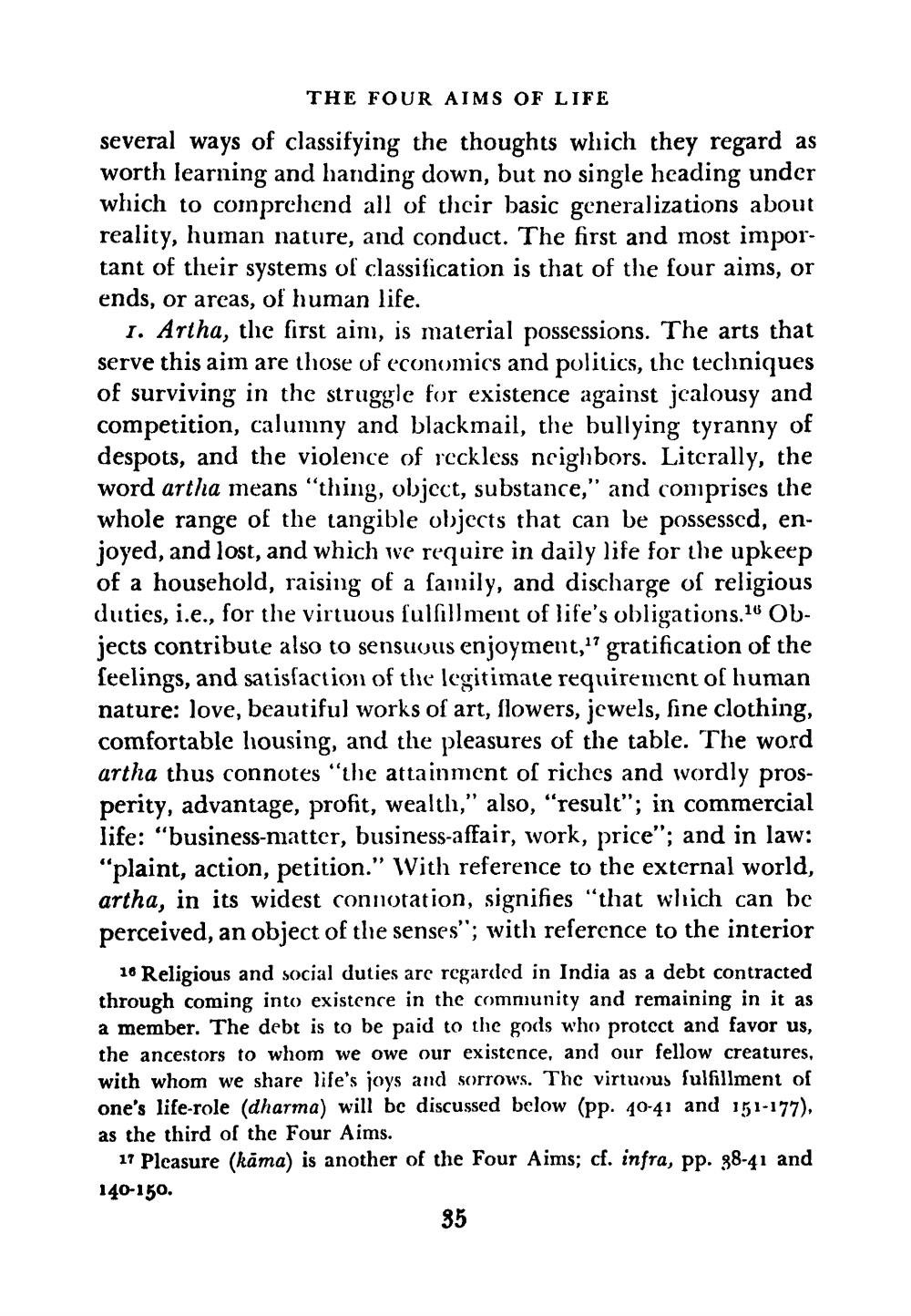________________
THE FOUR AIMS OF LIFE several ways of classifying the thoughts which they regard as worth learning and handing down, but no single heading under which to comprehend all of their basic generalizations about reality, human nature, and conduct. The first and most important of their systems of classification is that of the four aims, or ends, or arcas, of human life.
1. Artha, the first aim, is material possessions. The arts that serve this aim are those of economics and politics, the techniques of surviving in the struggle for existence against jealousy and competition, calumny and blackmail, the bullying tyranny of despots, and the violence of reckless neighbors. Literally, the word artha means "thing, object, substance," and comprises the whole range of the tangible objects that can be possessed, enjoyed, and lost, and which we require in daily life for the upkeep of a household, raising of a family, and discharge of religious duties, i.e., for the virtuous fulfillment of life's obligations.10 Objects contribute also to sensuous enjoyment, gratification of the feelings, and satisfaction of the legitimate requirement of human nature: love, beautiful works of art, flowers, jewels, fine clothing, comfortable housing, and the pleasures of the table. The word artha thus connotes "the attainment of riches and wordly prosperity, advantage, profit, wealth," also, "result"; in commercial life: "business-matter, business-affair, work, price"; and in law: "plaint, action, petition." With reference to the external world, artha, in its widest connotation, signifies “that which can be perceived, an object of the senses”; with reference to the interior
10 Religious and social duties are regarded in India as a debt contracted through coming into existence in the community and remaining in it as a member. The debt is to be paid to the gods who protect and favor us, the ancestors to whom we owe our existence, and our fellow creatures, with whom we share life's joys and sorrows. The virtuous fulfillment of one's life-role (dharma) will be discussed below (pp. 40-41 and 151-177), as the third of the Four Aims.
17 Pleasure (käma) is another of the Four Aims; cf. infra, pp. 38-41 and 140-150.
85




